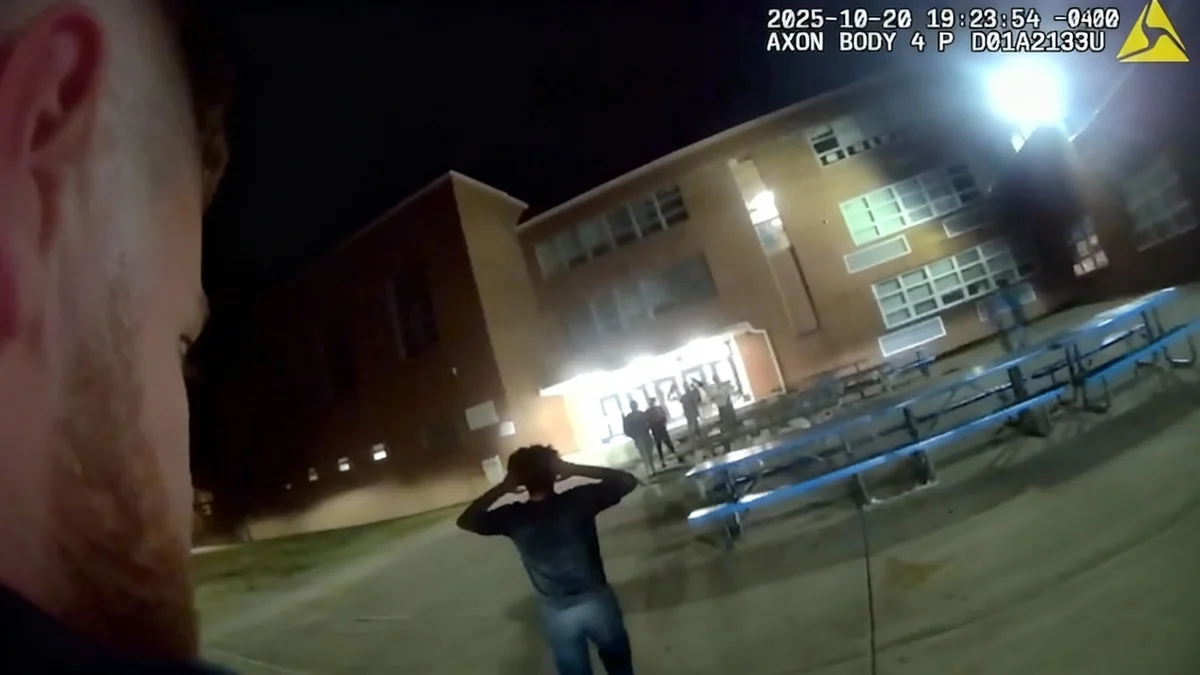Somerset County Superintendent Ava Tasker-Mitchell will step down this Friday following a prolonged and contentious period with the school board. The board announced Monday that the two parties had reached a “mutual agreement” for her departure, concluding months of public disputes that drew intervention from state education officials.
The decision follows an unsuccessful attempt by the board to fire Tasker-Mitchell over the summer, a move later ruled by the Maryland State Board of Education as a violation of due process. The ongoing conflict has left the Eastern Shore community deeply divided over the direction of its school system.
Key Takeaways
- Superintendent Ava Tasker-Mitchell and the Somerset County school board have mutually agreed to part ways, effective this Friday.
- This follows a failed attempt by the board to fire her for insubordination, which was overturned by the Maryland State Board of Education.
- The state board had criticized the local board for a “complete disregard of process” and disrespect for the rule of law.
- The conflict is rooted in policy changes made by a new, more conservative board majority elected in January.
- The departure leaves the district searching for new leadership amidst significant community turmoil.
The End of a Standoff
The announcement of Superintendent Ava Tasker-Mitchell's departure came after a brief closed-door meeting of the Somerset County school board on Monday morning. Board Chair Matthew Lankford read a prepared statement confirming the mutual agreement, though details of the separation terms were not immediately disclosed.
Under the terms of her four-year contract, a mutual agreement for separation entitles Tasker-Mitchell to receive her full salary and health insurance benefits for a period of six months. This provision is a common feature in superintendent contracts, designed to provide a stable exit path when a working relationship with the board becomes untenable.
Neither Lankford nor Tasker-Mitchell responded to requests for comment following the announcement. The departure marks a pivotal moment for a school district that has been embroiled in controversy since a new board majority took office.
State Intervention and Due Process
The Maryland State Board of Education played a crucial role in the events leading to this week's agreement. After the Somerset board attempted to fire Tasker-Mitchell over the summer, state officials intervened, first reinstating her and then issuing a formal opinion on the matter.
In that opinion, the state board delivered a sharp rebuke to the local body, stating, “We are deeply concerned by the local board’s complete disregard of process by failing to follow Constitutional and statutory requirements. Such actions show a disrespect for the rule of law and cannot be tolerated.” The state had given the local board a 30-day window to properly initiate termination proceedings, but the board instead opted for a negotiated separation.
A Year of Turmoil and Policy Shifts
Tasker-Mitchell was hired in July 2024 by a previous school board. The climate shifted dramatically in January when newly elected members, aligned with more conservative national political movements, formed a new majority.
Almost immediately, the board began implementing a series of sweeping policy changes that sparked fierce opposition from many parents and community members. The district, where about half the students are of color, saw the new board take swift action on several fronts.
Controversial Board Actions
The board's new policies created a consistent pattern of conflict with the superintendent and a significant portion of the community. Key actions included:
- Removing Diversity, Equity, and Inclusion (DEI) policies.
- Mandating the display of the American flag in nearly every room of every school.
- Granting itself final authority over which books are taught in classrooms and placed in school libraries.
- Attempting to eliminate all librarian positions from the school system budget, a move reversed only after county commissioners restored the funding.
These decisions often put the board at odds with Tasker-Mitchell, who was tasked with implementing district policy. The tension escalated as the board began to assert more direct control over administrative and academic functions traditionally managed by the superintendent.
Academic Performance Amidst Chaos
Despite the administrative turmoil, Somerset students showed notable academic progress during Tasker-Mitchell's first and only full year. In the 2024-25 school year, students in grades three through eight achieved the second-most improved scores on state reading tests in all of Maryland. However, math scores in the county continued to lag.
Flashpoints of Conflict
Several specific incidents highlighted the breakdown in the relationship between the superintendent and the board. One major point of contention involved the English language arts curriculum. The board initially refused to approve a new curriculum that had been piloted the previous year, citing a need to vet a suggested reading list. It only reversed its decision after Maryland’s Inspector General suggested that state funding could be withheld.
In another instance, the board ordered Tasker-Mitchell to remove information from the school system’s website regarding student rights during Immigration and Customs Enforcement (ICE) raids. This directive contradicted a request from the Maryland State Department of Education, which had asked all state superintendents to post the information.
The conflict became personal and public. In May, Tasker-Mitchell formally requested that the state board begin proceedings to remove Board Chair Lankford, alleging he had verbally threatened her and that she feared for her safety. The state board declined to take that step.
“The community began filling the boardroom for every meeting and became increasing angry as it voted on MAGA-aligned policies not supported by many in a school system that is about half students of color.”
Public participation at board meetings grew increasingly heated. The contentious atmosphere led the board to halt in-person meetings in September, moving to an online-only format and restricting public comment to written statements.
What Comes Next for Somerset County
With Tasker-Mitchell’s departure, the Somerset board must now find a new leader. The state superintendent, Carey Wright, must approve any new appointment. This process has already seen complications. In July, after its first attempt to fire Tasker-Mitchell, the board proposed David Bromwell as interim superintendent. Wright denied the request because she had reinstated Tasker-Mitchell.
Bromwell himself is a former Dorchester County superintendent who left his post in March 2024 after a mutual agreement with that county's school board.
The search for a new superintendent begins as the community remains fractured. Tasker-Mitchell is the second Black superintendent in the county's history to leave before the end of a contract, a fact not lost on residents. The previous Black superintendent successfully sued the district, resulting in a financial settlement and the naming of a school in his honor. The challenges facing the next leader of Somerset County Public Schools will extend far beyond academics, requiring a steady hand to navigate a deeply polarized political landscape.





